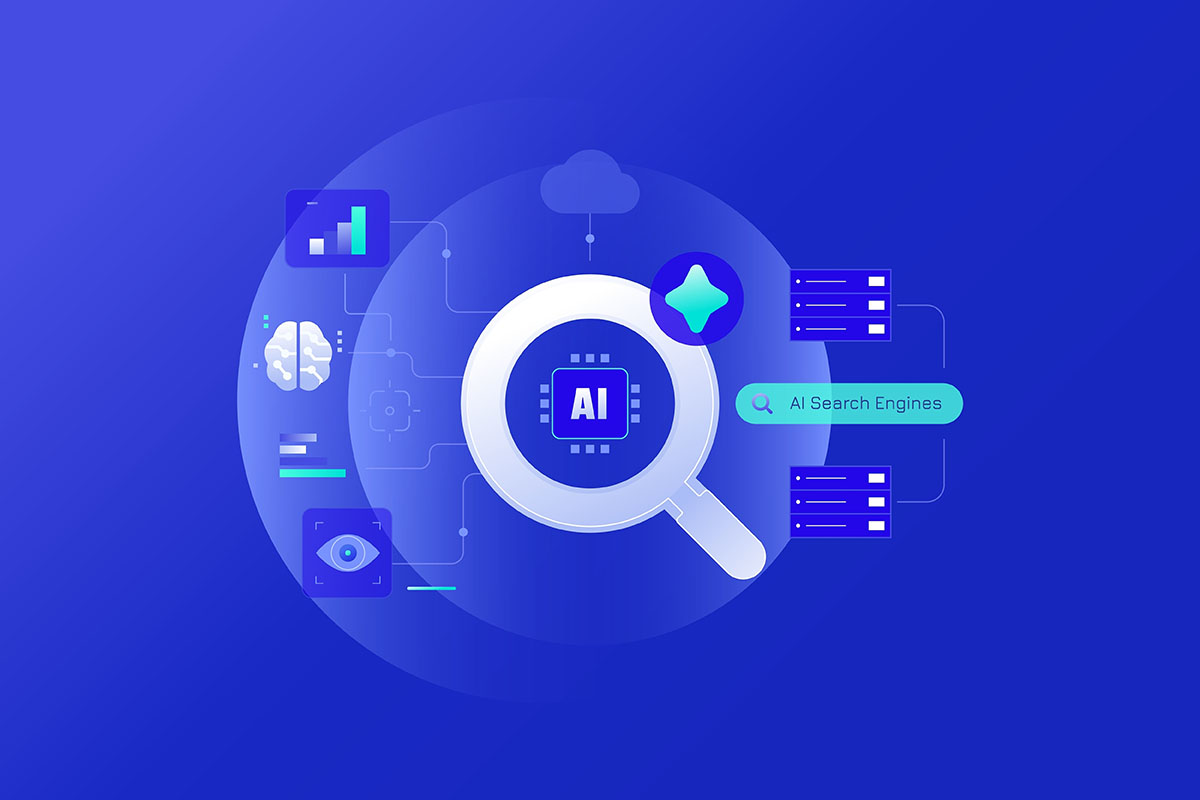The world of Search Engine Marketing is evolving, but AI marketing isn’t just a cameo anymore. It’s the co-star. From chatbots to AI-generated answer boxes, generative engines are redefining how businesses compete for visibility. Let’s walk through the changes reshaping the game and how marketers can adapt.
1. The AI-Led Search Revolution
Search no longer starts with keywords. It begins with conversation. Users now demand answers, not just links, and AI delivers them. Tools like Google’s AI Overviews, ChatGPT, Perplexity, and Gemini are changing the rules of engagement.
This shift is creating new ways to optimize content:
- Answer Engine Optimization (AEO): structured, conversational content designed to be directly quoted by AI answer engines
- Generative Engine Optimization (GEO): content designed to be cited or synthesized by AI, using structured metadata and rich information
Key takeaway: SEO isn’t dead, it’s expanding. Brands must now optimize for both humans and machines.
2. Zero-Click Searches: The New Normal
Marketers are feeling the pinch. AI-powered summary boxes steal clicks, and traffic metrics aren’t what they used to be. According to a recent survey, 80% of users complete 40% of searches without clicking any links
AI Overviews are visible & helpful, but click-less. Some sources even report visibility rising while clicks drop more than 30%, a phenomenon dubbed “The Great Decoupling”.
Strategy tip: Focus on conversion quality over traffic quantity. Your goal isn’t just to be seen, it’s to be trusted and to drive outcomes.
3. The Rise of Conversational, AI-Driven Search
The rise of conversational, AI-driven tools like chatbots and generative agents means traditional search engines are no longer the first stop for answers.
Traditional search volume is predicted to drop 25% by 2026.
ChatGPT processes around a billion searches per week, still well behind Google’s 5 trillion yearly, but growing fast.
These platforms demand natural language, context-rich content, not keyword-stuffed pages.
Action item: Train content and marketing teams in conversational writing and AI compatibility. Build AI familiarity into your marketing culture.
4. A New Toolkit: SEO + AEO + GEO = AI SEO
To thrive in this era, the strategy must be hybrid:
- Traditional SEO: Still valuable for technical health, backlinks, and niche keyword targeting.
- AEO: Format FAQs, how-to guides, and conversational tone to fit AI answer models
- GEO: Embed structured metadata, context-rich insights, and AI-friendly formats to get cited in summarized answers.
AI-powered platforms are already offering GEO capabilities, including citation tracking and mention analysis across AI platforms like Gemini, ChatGPT, Claude, and Perplexity.
What to Optimize:
- SEO: Keywords, technical health, backlinks
- AEO: Q&A, structured data, conversational tone
- GEO: Metadata, structured content, authority
5. Adapt or Be Left Behind
Traditional metrics like click-through rates or rankings are losing relevance.
Businesses are leaning heavily on AEO, GEO, and AI-first visibility tools
Diversify beyond Google, build presence across TikTok, YouTube, Instagram, and AI platforms for resilience
Goal shift: Be discoverable to AI. Be relevant to users. And stay agile.
6. The Future of Search Engine Marketing
The world of Search Engine Marketing is transforming:
- AI agents may become primary search interfaces.
- Visibility increasingly hinges on being cited rather than clicked.
- Brand authority, content quality, and trust factors matter more than ever.
Final thought: SEO is far from obsolete; it’s evolving. Success lies in the seamless integration of traditional SEO, AEO, and GEO strategies. AI isn’t replacing your role, it’s reshaping how you play. The future of Search Engine Marketing belongs to those who optimize for both people and AI.
Need help navigating the evolving world of SEO, AEO, or GEO? Katava Marketing can guide your strategy and help your brand stay visible in the AI-driven search landscape. Contact us today to get started.





